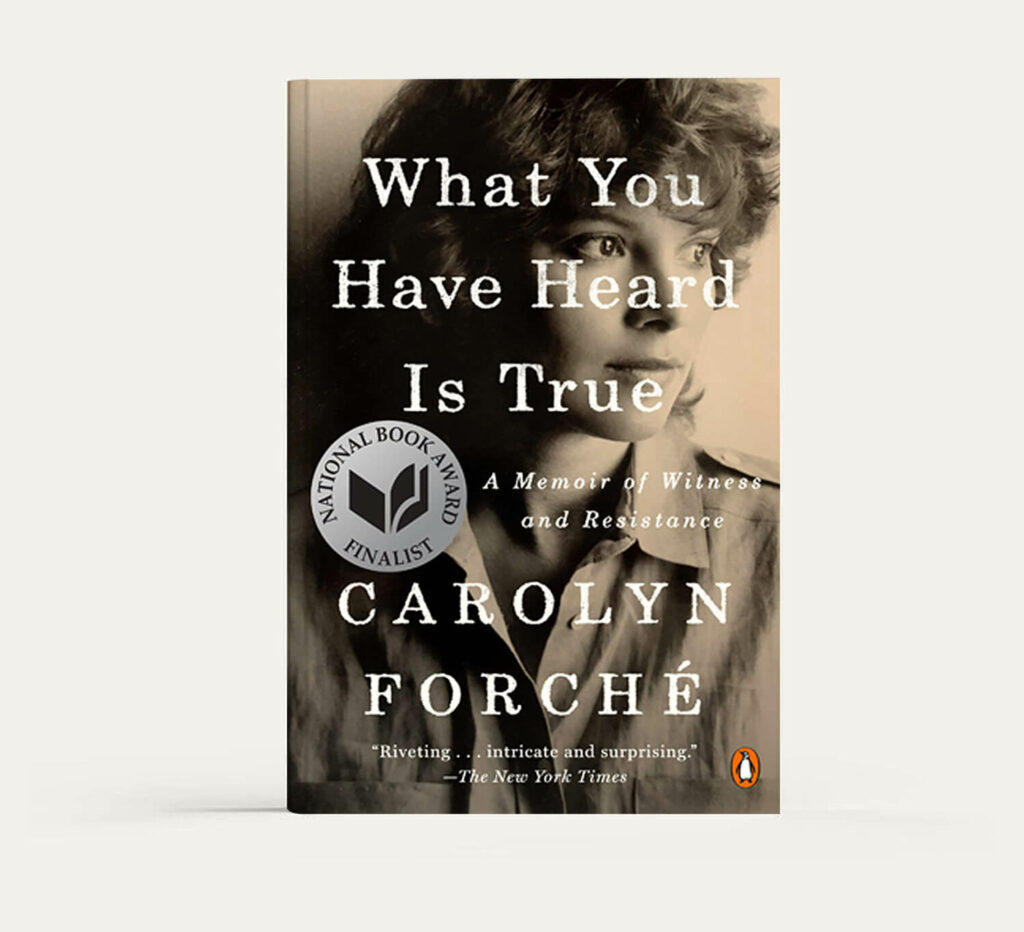Publication Timeline
In the Lateness of the World
Over four decades, Carolyn Forché’s visionary work has reinvigorated poetry’s power to awaken the reader. Her groundbreaking poems have been testimonies, inquiries, and wonderments. They daringly map a territory where poetry asserts our inexhaustible responsibility to each other. Her first new collection in seventeen years, In the Lateness of the World is a tenebrous book of crossings, of migrations across oceans and borders but also between the present and the past, life and death. The poems call to the reader from the end of the world where they are sifting through the aftermath of history. Forché envisions a place where “you could see everything at once … every moment you have lived or place you have been.” The world here seems to be steadily vanishing, but in the moments before the uncertain end, an illumination arrives and “there is nothing that cannot be seen.” In the Lateness of the World is a revelation from one of the finest poets writing today.
“An undisputed literary event.” — NPR
What You Have Heard is True
Over four decades, Carolyn Forché’s visionary work has reinvigorated poetry’s power to awaken the reader. Her groundbreaking poems have been testimonies, inquiries, and wonderments. They daringly map a territory where poetry asserts our inexhaustible responsibility to each other. Her first new collection in seventeen years, In the Lateness of the World is a tenebrous book of crossings, of migrations across oceans and borders but also between the present and the past, life and death. The poems call to the reader from the end of the world where they are sifting through the aftermath of history. Forché envisions a place where “you could see everything at once … every moment you have lived or place you have been.” The world here seems to be steadily vanishing, but in the moments before the uncertain end, an illumination arrives and “there is nothing that cannot be seen.” In the Lateness of the World is a revelation from one of the finest poets writing today.
“This luminous book stands beside the memoirs of Pablo Neruda and Czeslaw Milosz in its account of a poet’s education, the struggle of a great artist to be worthy of her gifts. Carolyn Forché’s prose is shamanic: it sees both the surface of things and their inner workings, it animates the inanimate world.” —Garth Greenwell
The Poetry of Witness
Poetry of Witness: The Tradition in English, 1500-2001, is a groundbreaking anthology containing the work of poets who have witnessed war, imprisonment, torture, and slavery. As a companion volume to Against Forgetting, Poetry of Witness is the first anthology to reveal a tradition that runs through English-language poetry. The 300 poems collected here were composed at an extreme of human endurance—while their authors awaited execution, endured imprisonment, fought on the battlefield, or labored on the brink of breakdown or death. All bear witness to historical events and the irresistibility of their impact. Alongside Shakespeare, Milton, and Wordsworth, this volume includes such writers as Anne Askew, tortured and executed for her religious beliefs during the reign of Henry VIII; Phillis Wheatley, abducted by slave traders; Samuel Bamford, present at the Peterloo Massacre in 1819; William Blake, who witnessed the Gordon Riots of 1780; and Samuel Menashe, survivor of the Battle of the Bulge. Poetry of Witness argues that such poets are a perennial feature of human history, and it presents the best of that tradition, proving that their work ranks alongside the greatest in the language.









